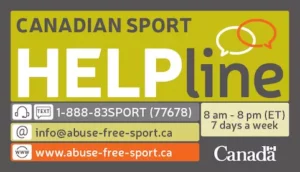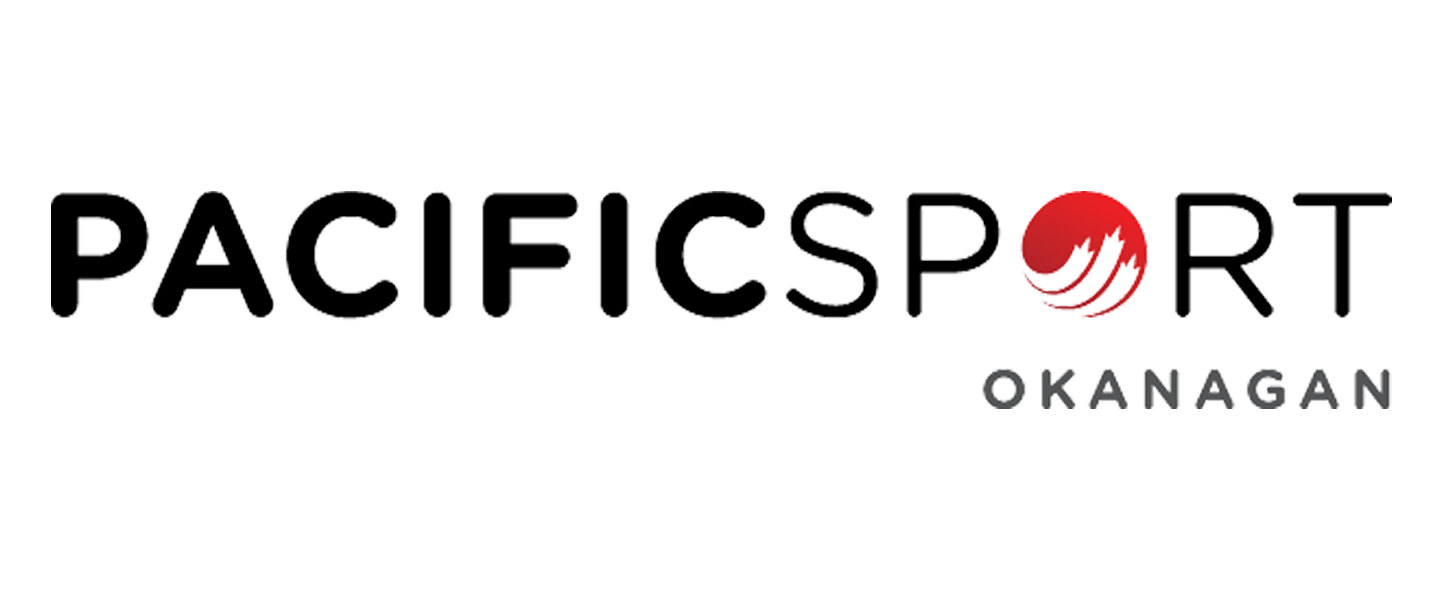What is Safe Sport?
Safe sport environments are accessible, inclusive, respect their participants’ personal goals, and are free from all forms of maltreatment.
Safety, in this context, includes physical safety and psychological safety. Where either or both of those are missing, there may be maltreatment happening that needs to be addressed.
Physical safety including things like:
- Prevention of injuries, including appropriate planning and use of equipment
- Concussion management
- Appropriate and progressive return to training and competition after injury
Psychological safety is “a belief that one will not be punished or humiliated for speaking up with ideas, questions, concerns, or mistakes” (Amy Edmondson, 1999). When people feel psychologically safe, they:
- Are empowered to raise issues that may help themselves, their team, or others improve
- Are not harassed or bullied
- Feel welcome in new environments and want to continue to participate
- Consent to appropriate physical touching (such as spotting)
- Are empowered to not attempt skills that they don’t feel capable of doing safely
- Are aware of power dynamics and know appropriate boundaries
All provincially funded sports organizations in British Columbia have adopted the B.C. Universal Code of Conduct, which applies to all participants, which includes expectations related to appropriate and inappropriate behaviours relating to these types of safety.
Our Safe Sport Mission
PacificSport Okanagan believes that everyone has access to Safe Sport. Athletes, coaches, officials, and volunteers have the right to participate in safe and inclusive training and competitive environments free of abuse, harassment, or discrimination.
Sports organizations in British Columbia are committed to creating a sports environment that is accessible, inclusive, and respectful of their participant’s personal goals and is free from all forms of Maltreatment.
PacificSport Okanagan has signed onto the Responsible Coaching movement which seeks that staff:
- Have appropriate background screening and criminal record checks
- Uphold the “rule of two”, where athlete interactions with adults are open and observable and involve other staff to be present.
- Have completed necessary training in ethics, safe sport, and/or the prevention of child abuse.
All PacificSport Okanagan staff have completed commit to kids training.
PacificSport Okanagan has signed the British Columbia Universal Code of Conduct (BC UCC).
How to report Maltreatment

Canadian Sport Helpline: 1-888-83SPORT | info@abuse-free-sport.ca | www.abuse-free-sport.ca
Unbiased. External. Confidential.
Call this hotline if you have any questions or concerns about your safety in sport.
Additional Resources
- Link to resources on the Rule of Two
- viaSport Addressing Maltreatment
- B.C. Helpline for Children – a confidential toll-free phone line for children and youth wanting to talk to someone – is 310-1234 (no area code required).
- VictimLinkBC is a toll-free, confidential, multilingual telephone and online service available across B.C. 24 hours a day, 7 days a week which provides information and referral services to all victims of crime and immediate crisis support to victims of family and sexual violence.
- Resilience BC: Anti-Racism Network provides information about how to report incidences of racism and hate crimes if you are a victim or witness such incidences.
- PlaySafe BC | Flag System: Safety in sport means knowing the difference between belonging and bullying behaviour and knowing about it. Make the call with the Flag System.
